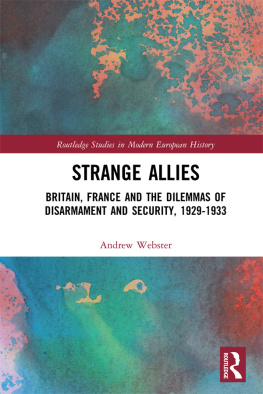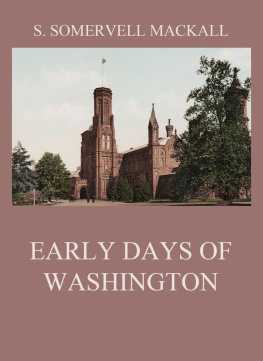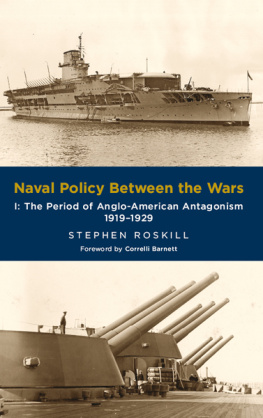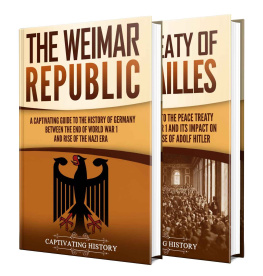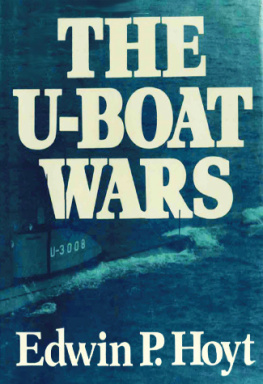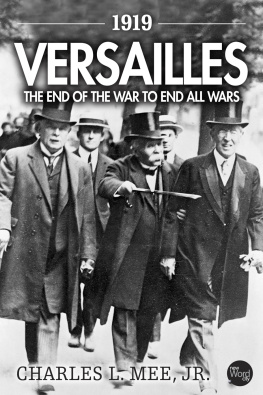Routledge Revivals
BETWEEN THE WARS
BETWEEN THE WARS
by
D. C. SOMERVELL
First published in 1948 by Methuen & Co. Ltd.
This edition first published in 2018 by Routledge
2 Park Square, Milton Park, Abingdon, Oxon, OX14 4RN
and by Routledge
711 Third Avenue, New York, NY 10017
Routledge is an imprint of the Taylor & Francis Group, an informa business
1948 Taylor & Francis
All rights reserved. No part of this book may be reprinted or reproduced or utilised in any form or by any electronic, mechanical, or other means, now known or hereafter invented, including photocopying and recording, or in any information storage or retrieval system, without permission in writing from the publishers.
Publishers Note
The publisher has gone to great lengths to ensure the quality of this reprint but points out that some imperfections in the original copies may be apparent.
Disclaimer
The publisher has made every effort to trace copyright holders and welcomes correspondence from those they have been unable to contact.
A Library of Congress record exists under ISBN: 48004619
ISBN 13: 978-1-138-55565-5 (hbk)
ISBN 13: 978-1-315-12255-7 (ebk)
BETWEEN THE WARS
HOME STUDY BOOKS
HISTORY OF ENGLAND
By E. L. Woodward
RUSSIAN LITERATURE FROM PUSHKIN TO THE PRESENT DAY
By Richard Hare
BETWEEN THE WARS
By D. C. Somervell
LOCAL GOVERNMENT
By Arthur MacNalty
A DIRECT ENTRY TO ORGANIC CHEMISTRY
By John Read
THE SOVIET WAY OF LIFE
By M. H. Lovell
HOW TO RUN A SMALL FARM
By J. Guns ton
MONEY
By Richard Fry
THE ENGLISH LANGUAGE
By C. L. Wrenn
HOME STUDY BOOKS
General Editor: B. Ifor Evans
BETWEEN THE WARS
by
D. C. SOMERVELL
First published in 1948
CATALOGUE NO. 4444/U
THIS BOOK IS PRODUCED IN COMPLETE CONFORMITY WITH THE AUTHORIZED ECONOMY STANDARDS
PRINTED IN GREAT BRITAIN
THIS book is not a history of things in general that happened between the two wars: an attempt to provide this would result in an overcrowded and miscellaneous picture. It is an attempt to assemble the main facts providing evidence for an answer to the question, why was the first great war followed by another?
Dozens and scores of books have been written on the history of the period between the wars. A few of these are noted at the end of this volume. I wish here to say a few words about three of them, namely A Short History of International Relations, 19201939 by G. M. Gathorne-Hardy, Unfinished Victory by Arthur Bryant, and World in Trance by Leopold Schwartzchild.
Historical works have been classified as penny plain and twopence coloured. Gathorne-Hardys book, published on behalf of the Royal Institute of International Affairs, is an excellent example of the former variety. It offers a careful and conscientiously unbiassed record of events, from which the reader may draw what conclusions he can. If it is a trifle dry, its dryness is a virtue. One feels that, within the limits which the author sets himself, it can be trusted. It was written by an Englishman, for the most part in 1934 and completed in 1940, but one feels that a similar book might have been written by a Frenchman or a German gifted with an equal power of detachmentif any such there be. Again, such a book might well be written in the year 2000.
The other two books are twopence coloured, and the colour is laid on thick. They are written with great ability and absolute sincerity, and no one will find either of them dry. They are quite enthralling. Arthur Bryant wrote his book in the autumn of 1939, with the laudable object of encouraging us to see the history of 191939 as the average German saw it, and of assuaging the hatred which the on-coming war was almost bound to provoke, that same hatred which, as provoked by the previous war, had, in Bryants opinion, ruined the prospects of the previous peace settlement. Schwartzchild, a German refugee from Hitlers persecution, wrote in 1942, with the purpose of persuading us that any misplaced leniency, such as had marred the previous peace settlement, would only entail a third war. Bryants Germany is more sinned against than sinning. Schwartzchilds Germany is the incorrigible enemy of civilization.
It may be that neither of these authors is right. I certainly do not wholly agree with either of them. It is quite certain that they cannot both be right. Clemenceau cannot have been, for example, both the evil genius of the peace conference and the one wise man in an assemblage of sentimentalists and muddlers. But it is by studying the forcible and compelling advocacy of both books, and by checking them against each other and against the cool impartiality of such a book as Gathorne-Hardys, that the reader may come to realize something of the horrid complexity of the subject on which I have now to embark.
I have written on these matters before, and have occasionally borrowed, with little or no alteration, paragraphs from two of my previous books, a short text-book entitled Europe 18711939, and a more detailed and ambitious work entitled A History of the Reign of George V.
I am reading these proofs in the early summer of 1946, but the book was written in the early summer of 1945, at the German final collapse and surrender. I was thus, perhaps fortunately, spared the temptation to draw analogies, between the post-war confusions of 1919 and those of today.
D.C.S.
CONTENTS
THIS book might well have been called The History of a Failure. The period which it covers begins with the conclusion of a four years world war which, whatever its original causes, had become, in the minds of the statesmen and peoples of at least some of the principal belligerents on what proved the victorious side, a war to end war. The victory was complete beyond all expectation; and yet, within twenty-one years, another war of almost exactly the same kind had begun.
People often think and speak and write as if this failure were not only deplorable but extraordinary, and not to be expected. They seem to assume that there must have been not only very great villains at work on one side, but also very great fools at work on the other to produce such a result. But surely that must not be assumed. Humanum est err are: it is the nature of man to make mistakes, and mistakes on great issues are great mistakes. The only periods of history in which there are no great failures are the ignoble periods in which no great things were attempted. In our period of twenty-one years the statesmen of our Western society set out to do one of the most difficult things ever attempted; they set out to eradicate a habit of the human race which was as old as our oldest historical records, and no doubt much older, namely the habit of settling disputes by fighting. Moreover, they undertook this task at a time when its successful accomplishment had become unusually difficult, and that for two reasons. On the one hand the discoveries of science had placed at the disposal of the art of war all kinds of new and fascinating instruments of destruction, such as would encourage an aggressor to assume that this time at any rate he could not fail. On the other hand, the whole world had become democratic; the policy of statesmen was, as never before, at the mercy of ignorant and emotional multitudes. The ancient institution of international war had been reinforced by two modern forces, which Arnold Toynbee calls the drive of industrialism and the drive of democracy.1 At the same time, though the whole world had become democratic in sentiment, no satisfactory political machinery had beenor perhaps ever can bediscovered through which an ignorant democracy can discover a rational will, and impose it on its rulers.


